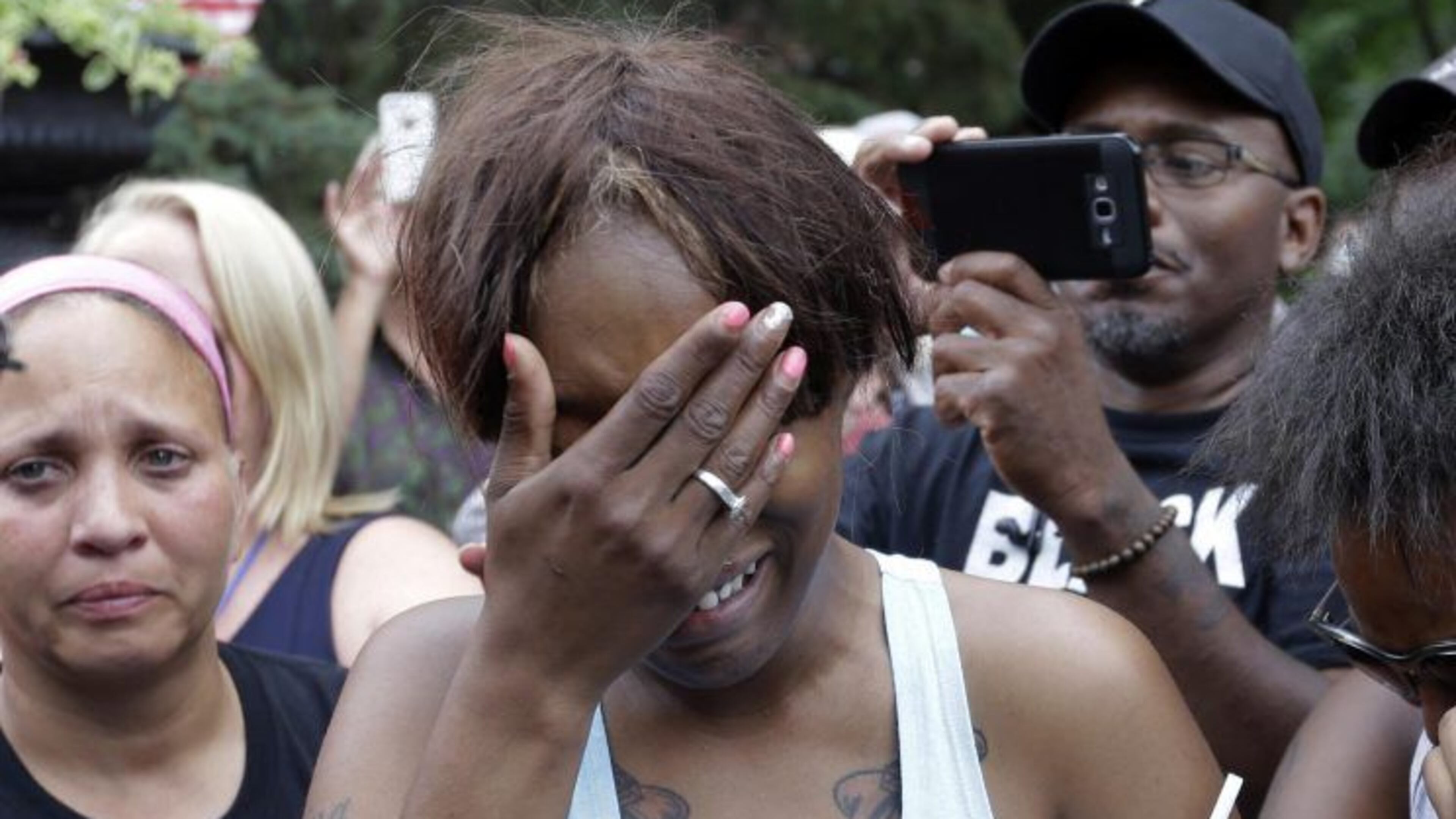... because this shouldn't keep happening

According to NBC News, the man who was shot to death by police near St. Paul, Minn., Wednesday night on a simple traffic stop had been stopped at least 31 times since 2002, all on misdemeanors.
Personally, I've been stopped once in that time frame, and I'm not exactly a by-the-book driver. That's admittedly a data base of one. However, in today's congressional hearing with FBI Director James Comey, U.S. Rep. Elijah Cummings brought up the Castile shooting as well as a shooting the previous day in Baton Rouge.
"I've been very fortunate that I've never been harmed by the police," Cummings says, his voice breaking throughout his plea, "but I've been stopped 50 million times."
As always, we don't know everything or close to everything about the events that led to Castile's death. We know that he had been pulled over for a bad tail-light and ended up dead, shot four times. Thanks to a heart-rending cell-phone video initiated by Castile's girlfriend immediately after the shooting, we know with some certainty that Castile had informed the police officer that he was carrying a weapon, and that he had a permit to carry that weapon. That's standard procedure for someone with a carry permit, and would seem to indicate that Castile was a responsible gun owner who had every intention of cooperating with law enforcement.
We also know with some certainty that Castile was reaching for his wallet in his back pocket for his driver's license -- as requested by the officer -- when the officer shot him repeatedly through the open car window, apparently believing that Castile had instead been reaching for the weapon. If that narrative holds up under further investigation, then Castile was killed for no reason, after fully following police orders, by an officer who panicked. If that narrative holds up, an innocent was killed by the government that should have protected him.
It's odd how little concern such incidents draw from those who in other contexts are outraged by claims of an overweening government interfering with their lives, even though no right is more basic than the right to stay alive. It's almost as if they see innocent dead people -- particularly innocent dead black people -- as the cost of their own safety, and they're content to see other people pay that cost.
No, it is not acceptable.
As Cummings noted, the Minnesota shooting occurred a day after a police shooting of a black man in Baton Rouge, Louisiana. That victim, Alton Sterling, was also armed, but other circumstances in the case are more murky. Sterling was shot by officers outside a convenience store, where he typically sold CDs. Bystander video shows Sterling on his back, with two police officers on top of him. "He's got a gun!" one officer shouts, although they should have been informed of his armed status by a previous 911 call.
Four shots rang out, and Sterling was dead.
The store owner, who witnessed the shooting, told reporters that police officers had been aggressive with Sterling from the beginning of the incident. He also said that at no point did he see Sterling's gun, which was in his back pocket, nor did Sterling ever reach for the gun. The two officers involved have yet to be interviewed by authorities, under a state law that gives them 24 hours before they can be questioned.
Until that's accomplished, until we know a lot more, we can't rush to conclusions about exactly what happened, and what the response should be. In both cases, the U.S. Justice Department has agreed to take over the investigations because local communities simply do not trust local law enforcement to honestly investigate itself, too often for good reason. Too often now, video has confirmed serious police misbehavior and even criminal acts that might have been swept away in an earlier era. We're forced to confront the fact that this is more than just urban mythology.
"To admit we've got a serious problem in no way contradicts our respect and appreciation for the vast majority of police officers who put their lives on the line to protect us every single day," President Obama said in a statement. "It is to say that, as a nation, we can and we must do better to institute the best practices that reduce the appearance or reality of racial bias in law enforcement."
Because this shouldn't keep happening.
